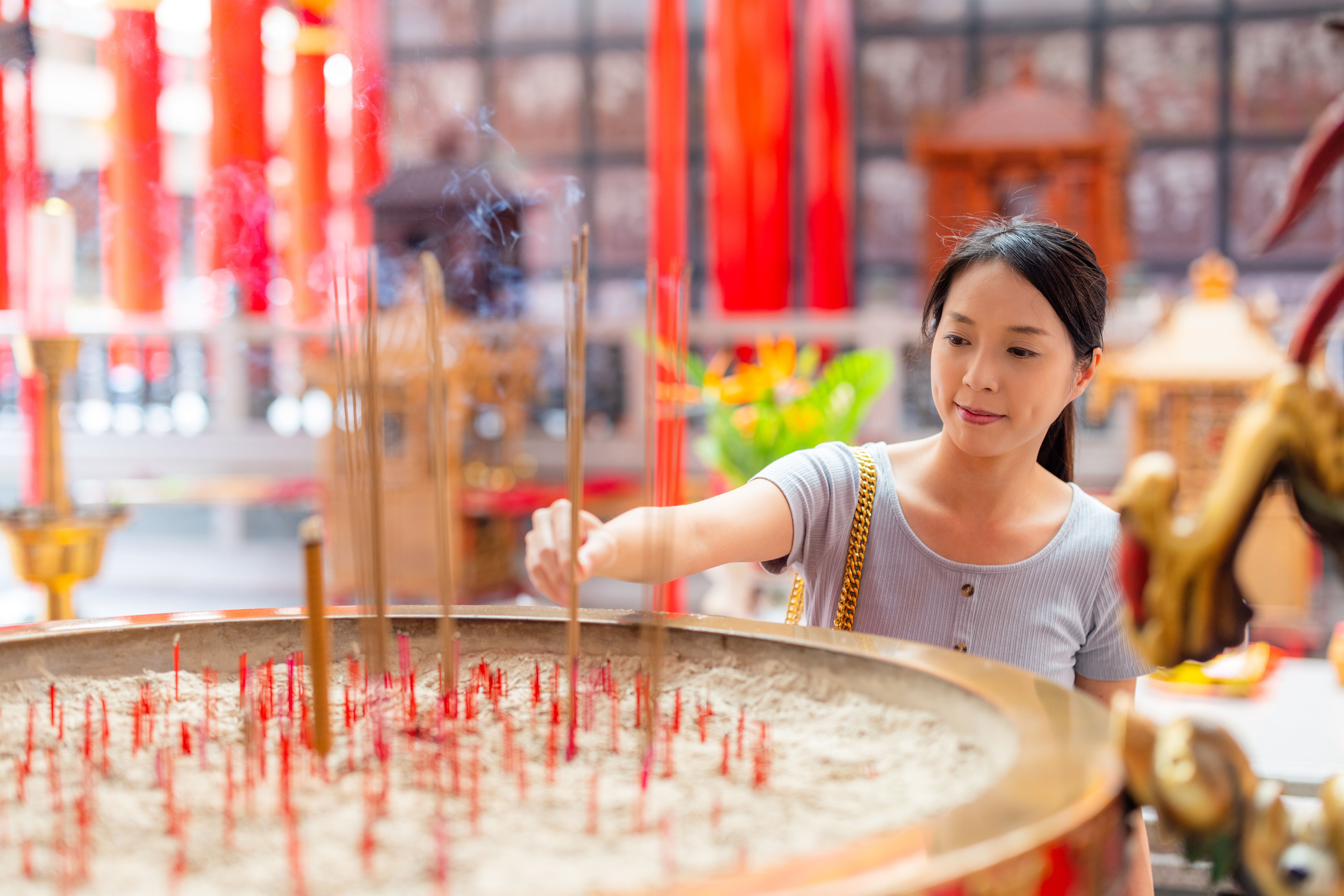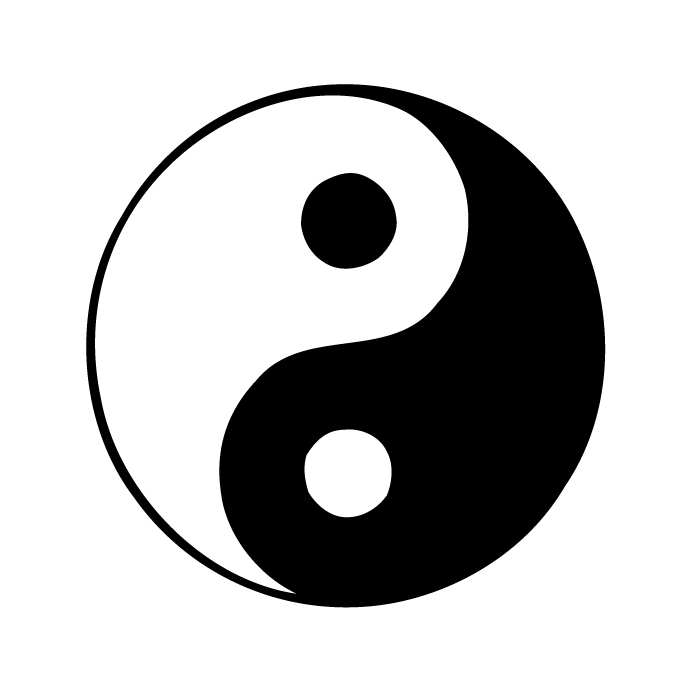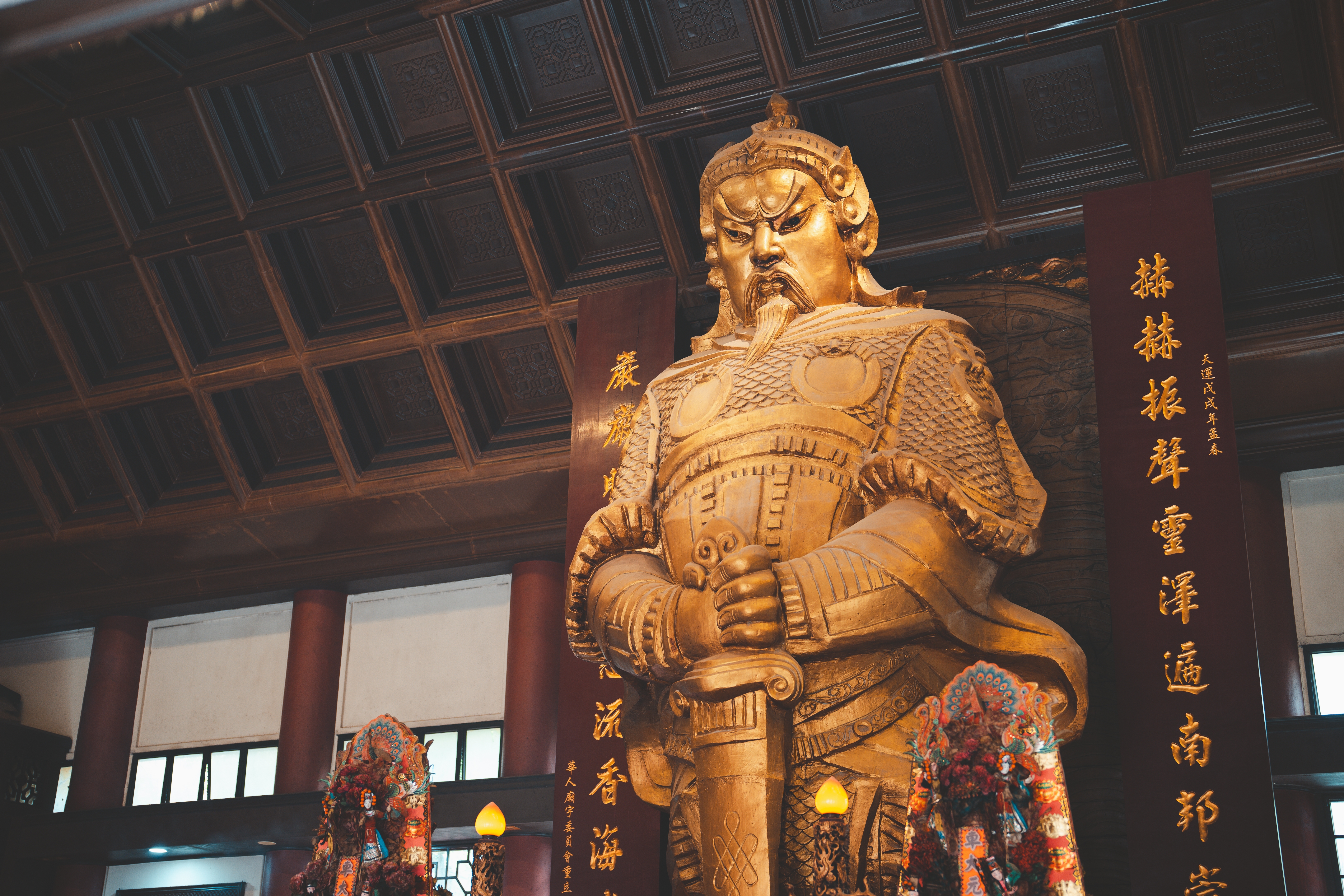Chinese folk religion, also called Chinese popular religion and shenism, is a blend of religious beliefs and practices. It includes elements of Buddhism, Confucianism, Taoism (also spelled Daoism), and native Chinese religious folkways. Folkways are traditional cultural and spiritual customs. Chinese folk religion as it exists today generally developed during the Northern Song dynasty (also spelled Sung), which ruled China from 960 to 1127. Today, it remains a vital part of Chinese religious and spiritual practices.

Elements and influences.
Certain religions and religious traditions have contributed specific elements to Chinese folk religion. Buddhism, for example, has provided Chinese folk religion with funerary (funeral and burial) rituals and with spiritual helpers. Such helpers include Buddhas and bodhisattvas—that is, compassionate beings who strive to help others achieve spiritual enlightenment. The philosophical and religious tradition of Taoism has also provided shenism with funerary rituals, and with a group of deities (gods and goddesses) to intervene in the lives of believers. Elements of Confucianism in shenism include the promotion of social harmony and ancestral veneration, a tradition of respect for and remembrance of one’s ancestors. Elements of native Chinese folkways in shenism include the concept of yin and yang (opposing and mutually dependent forces), ancestral veneration, and the practice of fengshui (also spelled feng shui). Fengshui is the ancient Chinese art of placement. It involves arranging one’s environment to promote an ideal flow of qi (life force; also spelled chi).

Customs and practices.
Unlike Chinese Buddhism and Taoism, Chinese folk religion does not have professional clergy, monks and nuns, or an elaborate organizational structure. Its most public manifestation is the independent miao (temple). Each miao usually features the image of one well-known shen (deity), although the images of lower or assisting deities also may be present. Temples usually do not have communal or social religious practices, except for an annual birthday festival for each temple’s deity. Individuals go to temples to seek practical help from deities, for example, to ask for healing or success in business or school. They also may go when they want answers from deities through divination (foretelling the future).
Shenism incorporates practices to venerate ancestors; to worship deities; and to make ritual offerings to deities and to ghosts (dead people’s spirits) and other spirits, for example nature spirits. Shenism also includes practices to influence one’s luck, qi, and fengshui. People make offerings of incense and food to deities, both in reverence and with the hope of gaining a favorable response to prayers. The deities are believed to partake of the offerings, after which the believers may eat the food for their own health and well-being. Incense and food also are offered to ghosts and other spirits so they will not cause harm to believers. Such offerings are not eaten by believers, but thrown away.
During the Lunar New Year (also called Chinese New Year), many people with Chinese ancestry eat special foods, display couplets (two-line verses) for good fortune, and bai-bai (bow in reverence) to ancestors residing in home shrines and to deities at temples.
Chinese folk religion has long played a part in traditional Chinese medicine and health practices. Acupuncture and the practices of taiqi quan (also spelled t’ai chi ch’uan) and qigong (also spelled chigong) are based on principles drawn from shenism. Taiqi quan is a form of martial art. Qigong is a system of movement, breathing, and meditation for health.
Deities and spirits.
There are many deities in Chinese folk religion. Several are universally worshiped, and others have a more local following. Shenism includes a fundamental belief that spirits spread throughout all aspects of nature and heaven. These spirits are different forms of the one Tao (underlying pattern of the universe), which cannot be represented as an image or a particular thing. A vast majority of Chinese people seek out various deities at different times to ask for help in maintaining good health, gaining wealth, and ensuring a long life. The deities reflect human qualities that are both noble and eccentric. They teach ordinary people how to live and help them move skillfully through the chaos of life.

As the pantheon (group of deities) of Chinese folk religion developed, it blended with other religious traditions. Local native deities became more concretely associated with Taoism. The pantheon also incorporated Buddhas and bodhisattvas from Buddhism. In addition, it came to mirror the imperial bureaucracy in China. Common people, who had little influence on their earthly rulers, sought justice by worshiping deities and spirits. The head of the heavenly “bureaucracy” is the Jade Emperor (also called Yuhuang dadi). He governs spirits who oversee the workings of the natural world and the administration of moral justice. A popular female deity is Tianhou (Empress of Heaven). In Taiwan, she is known as Mazu (Ancestral Granny). Originally, she was worshiped as a sea goddess. She was promoted to the Empress of Heaven by emperors who credited her with assisting their sea expeditions.
The most worshiped female figure in the pantheon is the Bodhisattva Guanyin. In Chinese folk religion, bodhisattvas are compassionate divine beings dedicated to the spiritual enlightenment and salvation of all living beings. They serve to guide and help suffering beings and offer a way for them to approach a meaningful spiritual life.
Lü Dongbin is a popular deity in northern China. Worshiped as a healer, he is considered the patron god of people in the medical professions. Tudigong, sometimes shown with his wife, Tudipo, is known as the Chinese god of agriculture. He is worshiped in many places, with local variations. Tudigong polices ghosts and spirits who are not cared for as ancestors. He spies on the local people and reports their affairs to his superiors.
Chinese folk religion provides its followers with a rich collection of religious beliefs and ideas, ritual traditions, myths, and principles. By doing so, it helps shape their daily lives, their social interactions, and their views of the relationships between self, society, and the universe.
